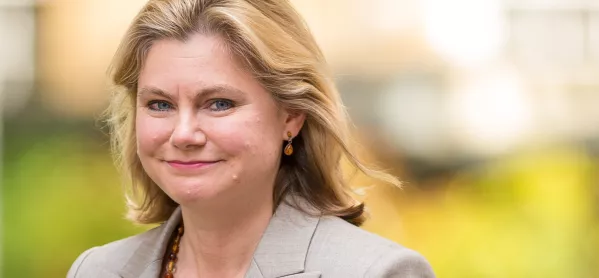The proportion of children from “ordinary working families” in grammar schools shows they are not just for the wealthy, the government said today.
The claim comes ahead of a speech this morning in which Justine Greening, education secretary, will make it clear that the group, whose household income is below the national average, is at the centre of the government’s education policy as it prepares for Brexit.
The grammar school sector has been repeatedly criticised for the low number of children from deprived backgrounds it admits.
Currently, children on free schools meals make up just 2.4 per cent of the grammar school population, despite forming 13.3 per cent of the overall school population.
However, the Department for Education has now said that the proportion of pupils from ordinary working families was similar in selective schools (36 per cent) and non-selective schools (35 per cent).
Ms Greening will welcome moves by many grammar schools to admit more children from disadvantaged families, and said she wants selective schools to achieve more for them.
‘Support for children from every background’
She is expected to say: “But we also shouldn’t lose sight of the fact that many young people from an ordinary working-class background already attend our existing grammar schools.
“And so, the new schools that we will create will support young people from every background, not the privileged few. Young people on free school meals - and those eligible for pupil premium. Young people from ordinary working families that are struggling to get by. I want these new schools to work for everyone.
“This will be a new model of grammars - truly open to all. We will insist on that. And it will reflect the choices of local parents and communities.”
Yesterday, the government launched a consultation on “better understanding of the issues faced by ordinary working families in the education system”.
The move emphasises the government’s decision to widen the focus of education policy beyond the most disadvantaged pupils to also include “ordinary working families that are struggling to get by”.
The DfE said 21 per cent of children from this group attended an “outstanding” school, compared with 25 per cent from families with incomes above the median.
Ms Greening is expected to say: “This is a government that believes that ordinary working families shouldn’t have to ‘make do’. We believe they deserve better than that. Because ordinary working families are the backbone of our economy, of our country.
“There’s an old adage - what gets measured gets done. And this government is focused on getting things done. So yesterday, my department launched a technical consultation to help us understand how the children of ordinary working people are faring in our education system.”
The DfE repeated that it would publish its response to its Schools that Work for Everyone consultation “in due course”.
Want to keep up with the latest education news and opinion? Follow Tes on Twitter and like Tes on Facebook




